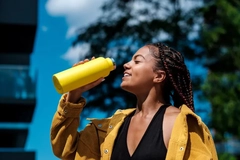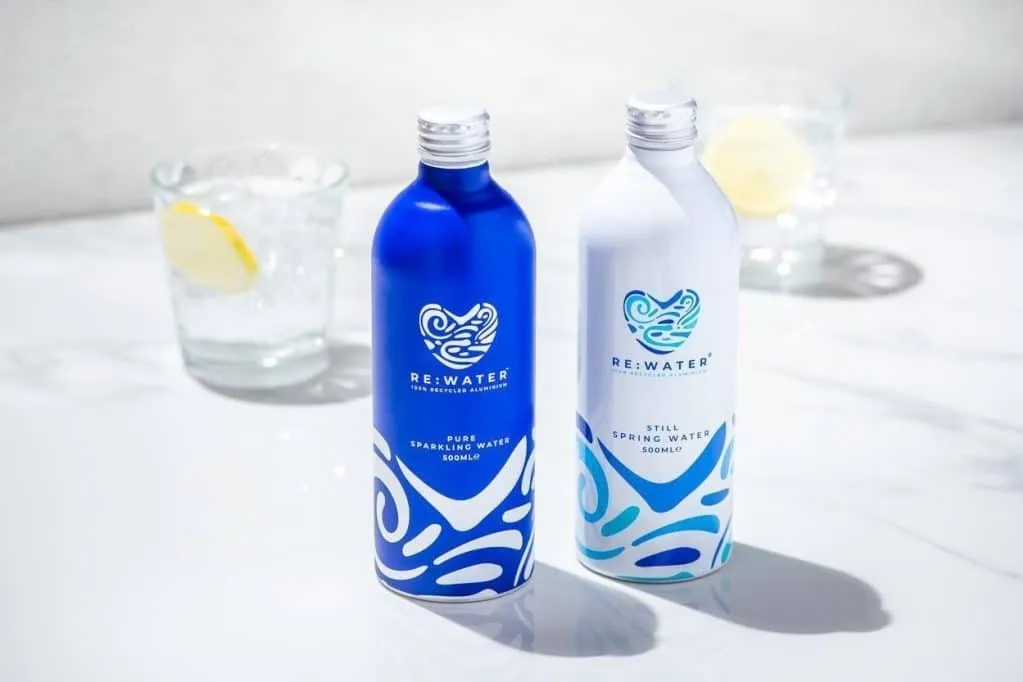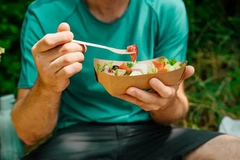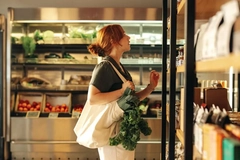Ball secures five-year deal to scale Re:Water’s aluminum bottle rollout
Key takeaways
- Ball Corporation signs an eight-figure, five-year agreement to supply millions of aluminum bottles to Re:Water.
- Re:Water targets rapid expansion in UK retail and hospitality with 100% recycled aluminum formats.
- The companies highlight aluminum’s strong recycling loop and supply chain reliability.

Ball Corporation will supply millions of aluminum bottles to Re:Water under a five-year agreement to boost the brand’s presence across the UK. The eight-figure agreement aims to support Re:Water’s growth in the retail, catering, and hospitality sectors.
Packaging Insights speaks with Matt Crocker, co-founder at Re:Water, to discuss scaling aluminum solutions in the hospitality sector, the material’s recycling loop, and the importance of supply chain transparency.
“There has long been a clear desire — from brands and consumers — to move away from plastic. But for many businesses, taking that leap has been difficult, especially when alternative formats have struggled to be truly recyclable, genuinely sustainable, or commercially viable,” says Crocker.

Victoria Marletta, commercial vice president of Personal and Home Care at Ball Corporation, says: “Our purpose is clear: to unlock the infinite potential of aluminum to advance a world free from waste. What customers seek in today’s world is enduring value — solutions that are not only effective, but responsible.”
She adds that by co-creating scalable solutions, Ball is delivering aluminum solutions that reduce waste, lower emissions, and preserve product integrity.
Convenient consumer formats
Crocker explains that Re:Water’s multiple successful case studies with national retailers demonstrate the viability of the company’s aluminum bottle solution.
He adds: “Consumers increasingly expect convenient, on-the-go formats. They want the familiar 28 mm neck they’re used to drinking from with plastic bottles, so we took the design everyone loves and re-engineered it in aluminum.”
 The collaboration aims to scale Re:Water's aluminum bottle across the UK.“The result is a format that’s sustainable and commercially robust. People are willing to pay a small premium for a product that not only feels good to drink from but also aligns with their environmental values. This combination of usability, sustainability, and consumer acceptance is driving the rapid growth we’re now seeing.”
The collaboration aims to scale Re:Water's aluminum bottle across the UK.“The result is a format that’s sustainable and commercially robust. People are willing to pay a small premium for a product that not only feels good to drink from but also aligns with their environmental values. This combination of usability, sustainability, and consumer acceptance is driving the rapid growth we’re now seeing.”
Since Re:Water’s inception in 2021, the company has sold over 12 million bottles, with products available in The National Trust, David Lloyd Leisure, Cornish Bakery, LW Theatres, The Eden Project, M&S, Pret, Virgin Atlantic Clubhouse, and Buckingham Palace.
Aluminum advantages
Crocker asserts that in the UK and Europe, the aluminum recycling loop is effective and entrenched in the region’s circular supply chain.
“Aluminum is infinitely recyclable, which is a great advantage over other formats. The recycling loop is well-established in both the UK and Europe, and the material retains its quality no matter how many times it’s processed. That means supply can scale far more reliably as demand increases.”
By contrast, says Crocker, bottles made with rPET are facing a “structural challenge” that limits the effectiveness of the recycling stream.
He notes: “It takes around three plastic bottles to produce just one rPET bottle. In other words, it’s a mathematical impossibility for every brand to secure enough recycled plastic to meet its needs.”
He argues that aluminum simply doesn’t have that limitation, “which is why it offers a far more secure and future-proofed supply chain as the market shifts toward recycled materials.”
Transparency is key
Crocker says that transparency is crucial to mitigate greenwashing accusations.
“Our bottles are made from fully recycled aluminum, and we back that up with a fully traceable supply chain within the UK and Europe. Because aluminum retains its quality through every recycling loop, there’s no need to blend in virgin material to maintain performance — so the claim is accurate and technically sound.”
Aluminum is gaining popularity in the hospitality sector due to consumer demand for circular solutions.
In an interview with Packaging Insights, Justin Mahy, founder of Kopu Water, explained why sustainability concerns and aesthetic considerations led the luxury water brand to choose aluminum bottles from Trivium Packaging over glass or plastic bottles.
Recently, Ball invested US$60 million in its Sri City, India, facility to meet growing consumer demand and strengthen its regional supply chain in one of Asia’s fastest-growing consumer markets.
In collaboration with Unilever and Alcoa Corporation, Ball also announced the first use of Elysis carbon-free smelting technology to produce an aerosol can, with applications across the personal care industry, including deodorants and cleaning products.












